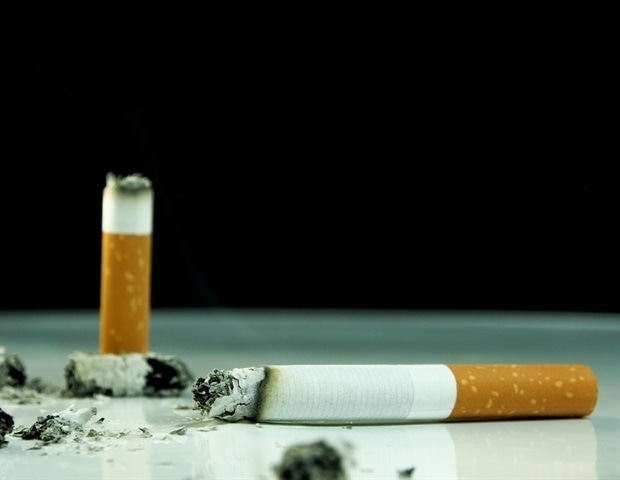Dr Evans Duah: The genius behind the NPP’s ‘Thank You Tour’ chaos

Ghana’s political commentators have been quick to sound alarm bells over the visible tensions and heated exchanges surrounding the New Patriotic Party’s (NPP) 2025 Thank You Tour. From Dr. Bawumia’s introspections to Kennedy Agyapong’s outspoken criticisms and regional complaints from figures like Abronye DC, many have called for the tour to be repurposed into an Apology Tour — a public display of remorse to heal the party’s wounds. This, however, is a profound misreading of the political moment.The seeming chaos we are witnessing is not a symptom of collapse; it is a necessary, healthy, and even brilliant stage of political rebirth. Drawing from political science, behavioural theory, and historical precedent, it becomes clear: the current tensions are clearing the air, mobilising the base, and laying the foundation for a stronger, more resilient NPP. Here’s why the visible tensions surrounding the Thank You Tour should not be mistaken for a party in crisis. Rather, they represent the very forces necessary for political renewal, strategic recalibration, and long-term success: 1. The Nature of Political Parties: Dynamic, Not Static: Political parties are not monolithic blocks of perfect unity; they are living organisms, constantly evolving in response to internal and external shocks. Charles Darwin’s principle of adaptation applies not only to biological species but also to political organizations. After electoral defeat, a party must confront its weaknesses, reassess its values, and often reconfigure its leadership. According to Joseph Schlesinger’s Political Ambition Theory, competition and ambition are inherent to political life. When a party suppresses these natural ambitions, it risks stagnation and decay. The current frictions in the NPP are the visible signs of a party that is still alive, still energetic, and still deeply invested in its future.In short, dynamic friction is a sign of health, not disease. 2. The Function of Tensions: Airing the Elephant in the Room Human behavior teaches us that suppressed frustrations don’t disappear quietly — they ferment into resentment. Freud’s catharsis hypothesis emphasizes that open expression of grievances, even when uncomfortable, is crucial for emotional and organizational health.What some call “rants” or “complaints” are, in fact, cathartic exercises that prevent deeper fractures later. By allowing different factions and leaders to voice their frustrations publicly, the NPP is venting internal pressures before they become poisonous fault lines. Better a loud house cleaning than a silent implosion. Through this process, the party is exorcising its internal ghosts — clearing the air for real healing to begin. 3. The Strategic Value of Open Competition: There is no stronger unifier than hard-earned mutual respect. History teaches that vibrant internal competition, though messy, produces stronger, more capable leaders. Abraham Lincoln’s rise within the Republican Party of 1860, despite fierce rivalries, is a testament to this. Ghana’s own NPP tradition — from Kufuor’s emergence after bruising primaries — proves that those who endure internal tests are better prepared for national leadership.Artificial unity — papering over real differences — is brittle and ultimately fatal. Real unity — forged through honest debate and competition — is durable. The Thank You Tour, by creating a space where passions are laid bare, is sharpening the NPP’s leadership ranks for future success. Democracy within the party must be as vigorous as democracy outside it. 4. Creating Attention, Energy, and Momentum: Interestingly, while critics within and outside the party point to these tensions as signs of disarray, they are inadvertently amplifying the NPP’s visibility. The ruling party sees an opportunity to project these tensions as evidence of opposition weakness — but in doing so, they are only making the NPP’s activities more visible and drawing national attention to the tour. Furthermore, the airing of diverse opinions across all media platforms — radio, TV, online forums — is creating the very energy and mobilisation needed to reinvigorate the NPP’s base. Rather than discouraging participation, these passionate debates are reigniting grassroots engagement and reasserting the party’s presence in the national conversation.In politics, attention is currency, and right now, the NPP is commanding the lion’s share of it. 5. Paving the Way for a Great RebuildThe seeming disorder is performing three vital political functions: • Mobilizing the base: When grassroots supporters see their heroes openly fighting for the soul of the party, they re-engage emotionally and politically. • Cleansing internal toxins: Silent frustrations are being addressed head-on, avoiding secret disloyalties. • Positioning for renewal: As debates rage, new leaders emerge, old assumptions are tested, and fresh energy infuses the party’s core. Political science’s Party Realignment Theory teaches us that great parties often undergo periods of intense internal upheaval before their greatest comebacks. Realignment is messy but necessary.In politics, silence is rarely golden — especially after defeat. The noise, the rants, the rivalries — they are proof that the party is alive, self-aware, and fighting for its future. And ironically, while critics call it disunity, they’re amplifying the very energy the party needs. The Thank You Tour has become a national spotlight, a public reckoning, and a stage for renewal. Before gold shines, it must pass through fire. The NPP is burning off what must go — to reveal what must rise. The NPP is not crumbling; it is recalibrating. It is not chaos — it is catharsis. It is not breaking down; it is breaking open.

















